Life Skills
Program Structure
Life skills are behaviours that enable individuals to adapt and deal effectively with the demands and challenges of life. There are many such skills, but core life skills include the ability to: The Ten core Life Skills as laid down by WHO are:
- Self-awareness
- Empathy
- Critical thinking
- Creative thinking
- Decision making
- Problem Solving
- Effective communication
- Interpersonal relationship
- Coping with stress
- Coping with emotion
Benefits for the Individual
- In everyday life, the development of life skills helps students to:
- Find new ways of thinking and problem solving
- Recognise the impact of their actions and teaches them to take responsibility for what they do rather than blame others
- Build confidence both in spoken skills and for group collaboration and cooperation
- Analyse options, make decisions and understand why they make certain choices outside the classroom
Benefits
- While students work hard to get good grades, many still struggle to gain employment. According to research by the CBI (Confederation of British Industry) in 2011 employers were looking not just for academic success but key employability skills including:
- The ability to self-manage, solve problems and understand the business environment
- Working well as part of a team
- Time and people management
- Agility and adaptability to different roles and flexible working environments
- The potential to lead by influence
Human beings are a complex mixture of knowledge, skills, attitudes and behaviour. People constantly interact with other people, with their inner selves and with the environment as a whole. Thus, as children grow up into adolescence and adulthood they need to acquire the knowledge, skills and attitudes that will enable them to handle themselves and their environment successfully.
- Livelihood or vocational skills.
- Physical skills
- Skills related to behaviour and interaction.
The first three are knowledge based, whereas the last one is directed at what we do with our knowledge and skills. These are the life skills addressed in the Life Skills Initiative. They can be divided into several groups.
(i) Knowledge of oneself or self-awareness. On the basis of their self-awareness, (awareness of what they can and cannot do) young people build their self-esteem and self-confidence. On this too they build their assertiveness or ability to respond confidently to any situation. Finally, self-knowledge leads to self-control so that people can cope with their emotions and stress.
(ii) Development of one’s interpersonal relationships with the people around one, family and friends, peers, people in authority and adults. This is done in two ways.
Positively through friendship formation and adjustment to society in which they live. It also involves empathy or putting oneself in the shoes of other people in order to understand them and live happily with them.
These relationships are dependent on effective communication which is also required for conflict resolution and management.
(iii) Knowledge of oneself and interpersonal relationships must be based on the development of creative and critical thinking in order to be able to confront the challenges of life and make appropriate decisions on what to do and how to solve problems. Thus, whether to resist or negotiate, how to assert oneself in different situations, even how to cope with one’s emotions and stress depend on one’s ability to think critically and creatively.
Life skills are examined in more detail below
The skills of knowing and living with oneself
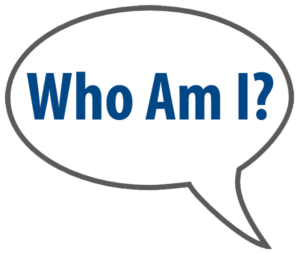
Young people need to know and understand themselves first, their potential, their feelings and emotions, their position in life and in society and their strengths and weaknesses. They need too to have a clear sense of their own identity, where they come from, and the culture into which they have been born and which has shaped them.
The more individuals are aware of their own capabilities, the more capable they are of using other life skills effectively, the more they are able to make choices which are consistent with the opportunities available to them, the society in which their live and their own abilities.
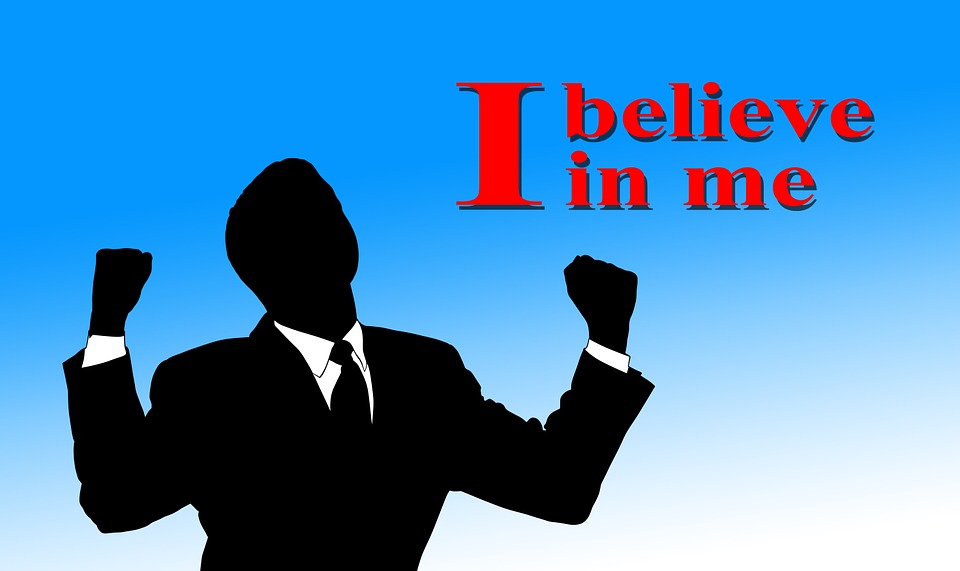
Self-awareness leads to self-esteem as people become aware of their own capabilities and place in their community. It has been described as an ‘awareness of the good in oneself. It refers to how an individual feels about such personal aspects as appear- acne, abilities and behaviour and grows on the basis of their experiences of being competent and successful in what they attempt.
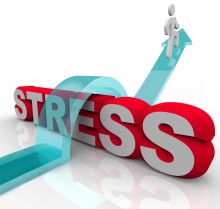
Emotions, such as fear, love, anger, shyness, disgust, the desire to be accepted etc are subjective and usually impulsive responses to a situation. That is why they can be very unpredictable and often lead to actions which are not based on logical reasoning. They can therefore easily lead people into behaviours they might later regret.
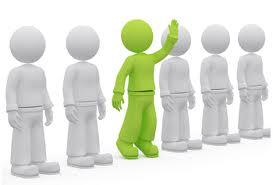
Assertiveness means knowing what you want and why and being able to take the necessary steps to achieve what you want within specific contexts. It can cover a wide variety of different situations, from a girl rejecting the sexual advances of a fellow student or older man to children convincing their parents that they need to continue with their education, to adolescents taking the lead in bringing people together for some beneficial act in the community such as protecting or developing the environment.
The skills of knowing and living with others
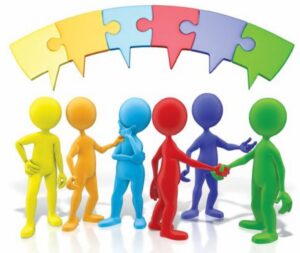
- Relationships are the essence of life. Relationships also come in different shapes and sizes. As children grow up, they have to develop relationships with:
- Significant adults in their lives such as parents, relatives, neighbours, teachers etc.
- Peers in and out of school. People they meet in life, friends of their parents, the local leaders, shopkeepers etc.
Not everybody can be one’s friend but children need to know how to react appropriately in each relationship so that they can develop to their maxi- mum potential in their own environment
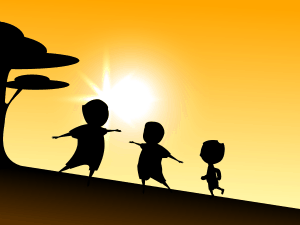
At the level of peers, this is one of the most important aspects of interpersonal relationships. An individual needs friends to share life with, activities, hopes, fears and ambitions. Friendship formation starts from the earliest stages of life but children and adolescents need to understand how friendships are formed and how to form and develop those which will be mutually beneficial. They should be able to recognize and, if necessary, resist friendships that can lead them into dangerous or unnecessary risk taking behaviour such as taking alcohol or other drugs, stealing and dangerous sexual behaviours.
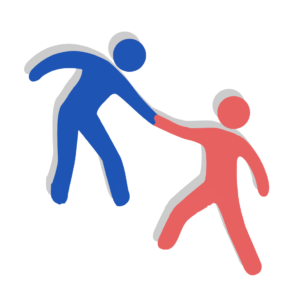
Showing empathy involves putting oneself in other peoples’ shoes, particularly when they are faced by serious problems caused by circumstances or their own actions. It means understanding and internalizing other peoples’ circumstances and finding ways to lessen the burden by sharing with them rather than condemning or looking down on (or even pitying which is another form of looking down on people) them for whatever reason. Thus empathy also means supporting the person so that they can make their own decisions and stand on their own feet as soon as possible.
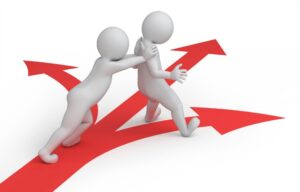
Peer resistance means standing up for one’s values and beliefs in the face of conflicting ideas or practices from peers. Friends, or colleagues, can come up with unacceptable or dangerous suggestions and may put pressure on one to accept. One needs to desist from doing things that one believes to be wrong and be able to defend one’s decision, even if it means being threatened with ridicule or exclusion from group membership. With young people in particular, the pressure to be like other group members is great. Thus, if the group is turning to negative influences and habits, peer resistance is a very important skill.
Negotiation is an important skill in interpersonal relationships. It involves assertiveness, empathy and interpersonal relations and also the ability to compromise on issues without compromising one’s principles. It involves being able to cope with potentially threatening or risky situations in interpersonal relations, including peer pressure, state one’s own position and build mutual understanding.
This is connected to interpersonal relations, negotiating skills and coping with emotions and stress. Conflicts are unavoidable and sometimes necessary but the skill of non-violent conflict resolution ensures that such conflicts do not become destructive. This can either involve a person resolving his/her own conflict situations or assisting others to come to an understanding without resorting to fighting.
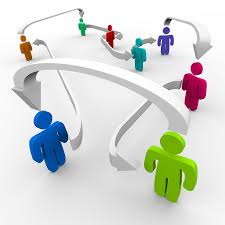
Communication is the essence of human relationships. Therefore, one of the most important life skills is being able to communicate effectively with others. This includes listening skills and understanding how others are communicating as well as realizing how one communicates in different ways. For example, while one’s mouth is saying one thing, one’s body may be saying something completely different.
The skills of making effective decisions
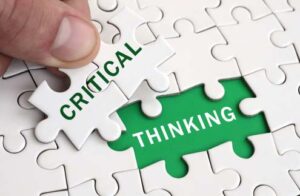
Children growing up in the world of today are confronted by multiple and contradictory issues, messages, expectations and demands from parents, peers, teachers, the media, religious leaders, advertisements, music etc. These interact with their own aspirations and ambitions and constantly require them to make decisions. They need to be able to analyse critically the environment in which they live and the multiple messages that bombard them.

The furniture in a room can be arranged in one way and the room looks pleasing to the eye. Another person may come and arrange the furniture in a different way and make the room look even more attractive. In general, there is not always one way of doing things. Neither is human life static. Coming up with new things, new ways of doing things, new ideas, arrangements or organizations is called creative thinking. This is important in life skills because people are continually placed in unexpected or unfamiliar situations where creative thinking is required to make an appropriate response.
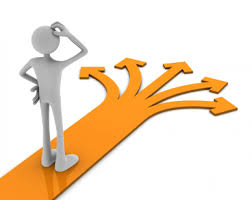
Each day one wakes up, one must make decisions. Should one go to the garden or wait for more rain to sink into the soil? Should a family cook beans today or green vegetables? These are relatively simple decisions which may not critically affect the direction of one’s life. However, an individual is frequently confronted with serious decisions in regard to relationships, future life etc. There are frequently conflicting demands all of which cannot be met at the same time. One must make a choice but at the same time one must be aware of the possible consequences of one’s choice.
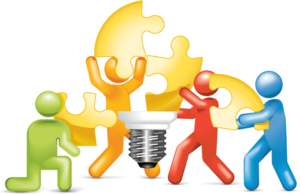
Problem solving is related to decision making and needs many of the same skills. It is only through practice in making decisions and solving problems that children and adolescents can build the skills necessary to make the best choices in whatever situation they are confronted with,
2.1 WHAT ARE THE AIMS OF LIFE SKILLS EDUCATION?
In equipping the learner with the life skills mentioned above, life skills education aims at promoting the following abilities in the learner.
(i) Taking positive health choices.
(ii)Making informed decisions.
(iii)Practicing healthy behaviour’s.
(iv)Recognizing and avoiding risky health situations and behaviour’s.
Life skills education, therefore, does not teach skills in isolation but are an integral part of a variety of educational programmes such as:
- Drug abuse prevention.
2.Prevention of adolescent pregnancy.
3.AIDS education.
4.Protecting young people from abuse.
5.Peace education.
6.Suicide prevention programmes.
7.Programmes for vulnerable youth such as street children, orphans etc.
The skills outlined above are transferable to many different situations and issues. Linking these skills to the knowledge available will enable the Ugandan child to become a confident and competent individual, able to take his/her place in society.
2.2 WHY SKILLS BASED APPROACH?
Traditionally, the main approach to health and life skill education has been knowledge based. This means just giving children the facts and information about, for example, the effects and dangers of misusing drugs or the biological parts of the reproductive system.
These activities address the right current problems of our society and especially youth.
2.3WHAT ARE THE BENEFITS OF LIFE SKILLS EDUCATION?
The World Health Organization suggests the following:
HEALTH BENEFITS
- i) Life skills education addresses the combination of psychological and social (i.e. psychosocial) factors that contribute to healthy behaviour.
(ii) The implementation of life skills education in schools addresses the needs of all children.
(iii) The promotion of personal and social skills is important aspects of health promotion interventions that aim to empower the individual to promote his/her own health as well as the health of others and of the community.
EDUCATIONAL BENEFITS
(i) Life skills education introduces learner-cantered and interactive teaching methods which can have a positive impact on:
1.The relationships between teachers and pupils.
- Young people’s enjoyment of learning.
- Teacher’s job satisfaction.
- Rates of drop out and absenteeism from school.
- Life skills go well with the ethics of a teacher and wilt brings serenity to schools.
(ii) Life skills have an impact on the teaching of academic subjects, e.g. because of the introduction of interactive methods.
(iii) There are indications that life skills education can have a positive impact on academic performance. Once the students or pupils feel that they are involved in issues of relevance to their own lives, they practice- pate more and learn more.
SOCIAL BENEFITS
Life skills education can promote more pro-social behaviour and so result in less delinquency among adolescents.
CULTURAL BENEFITS
(i) Life skills education helps to clarify the needs of young people growing up in modern societies.
(ii) Life skills education is of particular value to young people growing up in multicultural societies.
ECONOMIC BENEFITS
(i) Life skills education, and the skills promoted, appear to be amongst the ones most highly valued by the future employers of young people.
POLITICAL BENEFITS
Life skills education addresses the needs of the child as specified in the United Nations Convention on the Rights of the Child and the Child Statute of Uganda, 1995.
(i) Several studies have reported positive changes in self-reports of health-related behaviour following educational programmes based on life skills, for example research on self-reports of drug use and smoking.
